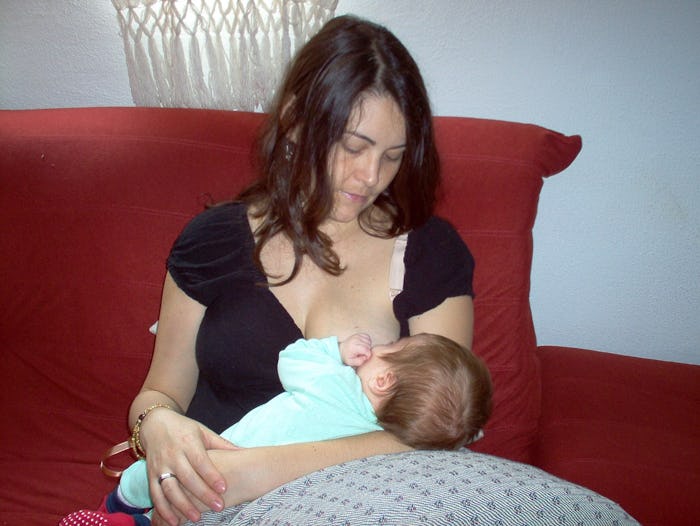When you're a nursing mom, you inevitably come across stories about the scary and painful condition known as clogged or plugged milk ducts. Before you can prevent this condition, you need to ask yourself why do clogged milk ducts happen.
But first, you need a little information about what clogged milk ducts actually are. According to Baby Center, when you are making more breast milk than is being expressed, it can get backed up in the duct. When this happens, the tissue around the duct can become swollen pressing on the duct which can cause a blockage. Kelly Mom notes that you will likely notice a red, hard, tender, swollen, or a hot lump near the clogged duct. Occasionally there will only be tenderness and no obvious swelling.
Kelly Mom suggested that moms may have a restricted milk flow due to latching problems, nipple pain, oversupply, or because they are skipping feedings. You can also inadvertently be putting pressure on your ducts by wearing a tight bra, pressing in with your fingers while nursing, or even the way you hold your diaper bag. Occasionally the duct can become inflamed due to a breast injury or a yeast or bacterial infection which can cause the blockage.
If your clogged ducts are left untreated you can start to get fevers, aches, or chills, which can mean that you have developed a breast infection known as mastitis, according to La Leche League International (LLLI). You should contact your doctor if you suspect that you have mastitis, as it can be treated by antibiotics.
The only way that you can clear a clogged duct is by expressing you milk by either nursing or using an adequate breast pump. You can also alleviate the symptoms by applying heat witha heating pad or a hot shower and then gently massaging the affected area, and immediately nursing your baby from the affected side. LLLI suggests that you take off your bra, as it may be the cause of your blockage.
If you get frequent clogged milk ducts you should have your baby checked for tongue tie, and talk to a lactation consultant to make sure your baby is latching properly and that you are feeding long enough to empty your breasts.
Finally, you should look into your own life to see if there is an underlying health issue that can lower your resistance to infection according to Kelly Mom. Moms who are under too much stress, worried or busy may not be resting enough. You may have anemia or food allergies. Clogged ducts and mastitis can also be associated with hormonal changes. It's always a good idea to talk to your doctor to help figure out the cause and come up with a plan of action so that you can nurse your baby without being in pain.
